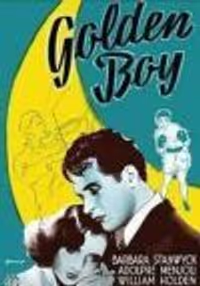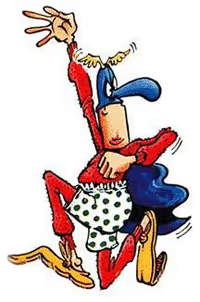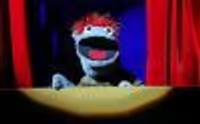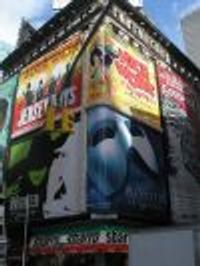Am I The Only One That Disliked "Matilda"???!!!
Phyllis Rogers Stone
Broadway Legend Joined: 9/16/07
#75Am I The Only One That Disliked
Posted: 4/17/13 at 7:00pmIt doesn't make sense if you know what PC means, though.
lillebjorn
Chorus Member Joined: 9/11/09
#77Am I The Only One That Disliked
Posted: 4/17/13 at 7:02pm
i didn't find much in the score when I saw the show but something in it made me get it and, for me, it grows with each listen. Which isn't something I think will happen with the Kinky Boots score.
I agree with the reviewers who felt the kids songs suffered from too much treble and the kids singing at the top of their voices, both volume and pitch. The sound was bad when I saw it, though I hear it's got better, at least in the Matilda story parts.
#78Am I The Only One That Disliked
Posted: 4/17/13 at 8:17pmI was bored silly. I loathe the score. I left humming the set which I liked. I enjoyed the first fifteen minutes than felt it crash landed.
#79Am I The Only One That Disliked
Posted: 4/17/13 at 9:27pm
I am sure, because it received accolades in London, that many reviewers were intimidated into giving it raves, as they did with Billy Elliot.
Some of the accolades it received in London were from American critics. Like Brantley.
The Brits cannot do musicals. Period.
They can and they do.
And perhaps because Mormon was embraced over there, they thought they would return the favor- who knows.
Not all the British critics embraced the show. The transfers of both shows had nothing to do with each other.
But I felt the reviews were way over the top in praise of this show.
But you can't accept the idea that others may feel differently? That the idea that there MUST be some sort of critical conspiracy theory going on if critics enjoy a British musical? I didn't like Spring Awakening, but I just chalked it up as not being my thing. I didn't realize I could decide it was a huge American conspiracy theory and that all American musicals are terrible and I was the only one who didn't fall for their cunning scam in a herculean effort to remain PC. Or something. Nah. I'm just not a crazy xenophobe.
Sorry you didn't like the show, but that has nothing to do with how anyone else has to feel about it or why. Sounds like your issue has more to do with the British than it does the musical itself.
#80Am I The Only One That Disliked
Posted: 4/17/13 at 9:34pm
I saw it . MEH! Honey why don't you wait to see it before defending it so much?
#81Am I The Only One That Disliked
Posted: 4/17/13 at 10:00pm
I'm not defending the show. My post had nothing to do with how I feel about the show at all.
My mommy said I'm a miracle. So, nanny nanny boo boo.
evic
Broadway Star Joined: 3/5/04
#82Am I The Only One That Disliked
Posted: 4/17/13 at 11:37pm
OK Matt- I'll take the bait. Of course everyone is entitiled to their opinion-it is what makes the world go around... but in the realm of what's going on in our crazy world, theater is really not that important....it is only a diversity. But the silly spats we have with each other about it is a lot of fun.
I would take Feingold's opionion about a show over Brantley's anyday. I was as surprised at the over the top love fest for Matilda as I was for the over the top love fest for Mormon. And was shocked that something as brilliant and important as Scottsboro Boys was a flop.
The theater business is very political and very, very money driven- and there are allegiances and rivalries. I can name scores of awful American shows as well as awful musicals from the UK. We just do the good ones better- it is an art form that you must know originated in the States. Not to say that other countries don't do them well- just not as well.
I dislike many British people as I dislike many Americans. And they may dislike me a s well. Life goes on and it's award season!!!!!! I assume you have your Union Jack ready to wave and a gin and tonic by your side when Matilda wins best musical.
#83Am I The Only One That Disliked
Posted: 4/18/13 at 12:07am
>> The thing that I am [surprised] nobody has mentioned the fact that the source material is about a girl with [telekinetic] powers ( Carrie-lite),
No it isn't. Not at all.
and yet in the musical it is [treated] like a [deus] ex machina, appearing in the last 20[ ]minutes, as a way to create a solution to a problem that we found out existed 5 minutes after she discovers her abilities.
You'll probably be equally confused to find out that Matilda loses her telekinetic abilities when the new headmistress promotes her to the 6th grade, and her life becomes more stable and secure living with Miss Honey.
Updated On: 4/18/13 at 12:07 AM
#84Am I The Only One That Disliked
Posted: 4/18/13 at 12:10amThe fact that musical theatre originated in the United States doesn't mean that other countries don't do them equally as well. That's just a ridiculous claim. Regardless of what your opinion is of this show, it's quality has nothing to do with the fact that it's a British show.
#85Am I The Only One That Disliked
Posted: 4/18/13 at 4:15am
Also musical theatre didn't originate in the states. Gilbert and Sullivan had a lot to do with it, as did the British Musical Comedies of the 1920s and 1930s. It was then Kern, Hammerstein and then Rodgers and Hammerstein II who then moved it forward.
But - to say the British can't do musicals... c'mon.
ullabelt
Stand-by Joined: 3/26/06
#86Am I The Only One That Disliked
Posted: 4/18/13 at 4:15amI wasn't a fan. I don't find Miss Trunchball scary in the least and I don't like that they went out of their way to avoid making the show about Matilda's special ability. Having her knock over a tiny cup ten minutes before the end was a bit lame.
#87Am I The Only One That Disliked
Posted: 4/18/13 at 8:52am
>> "I don't like that they went out of their way to avoid making the show about Matilda's special ability."
Oh, for Pete's sake... Matilda is not a show based on a Stephen King novel. Matilda is not a character with telekinetic powers.
It's a children's book (and musical) about a precociously intelligent five-year-old who's intelligence is unrecognized and who is also (using adult terms) abused by the adults around her.
The writing centers around two basic emotions that children can relate to:
* Feelings of being powerless against adults and
* The need to feel secure and loved
Because it's a children's book, fantasy or "wish fulfillment" is allowed to become reality (as in, "I wish I could fly" [Peter Pan] or "I wish I were the King of Monsters" [Where the Wild Things Are]).
Matilda does not have "special powers" like Stephen King's Carrie. She is not a telekinetic. She begins expressing her frustrations by pulling pranks, but as her frustrations grow, "magic" happens (in typical children's book fashion).
As soon as her basic needs have been met (she has control over the "bad" adults, and she feels appreciated, loved and secure living with Miss Honey), the "magic" goes away.
Regarding those who feel that Miss Trunchbull should have suffered a fate that was more befitting of her crimes, I believe you're thinking too much in "adult" terms ("an eye for an eye"). As this is a children's book/musical, Miss Trunchbull's comeuppance demonstrates a better (IMO) lesson for children. Matilda gets exactly what she needs to resolve her problem - Miss Trunchbull simply goes away. There is no need for "revenge" in this story (at least, Dahl did not choose to include it). Perhaps children will see Matilda's satisfaction with the outcome as an example they can apply for themselves.
The other factor many folks are missing is the use of exaggeration. ALL of the characters and situations are exaggerated. This (most times) is appealing to children and also mirrors their view of the world around them. EVERYTHING is physically bigger, and as emotions are still new and mostly unexplored, also "feel" bigger.
If (as an adult) you want to calm your nerves regarding Trunchbull swinging a girl around by her pigtails, recognize that Dahl wrote with an understanding of exaggeration from a child's perspective. If you really need to, you can assuage your sensibilities by reminding yourself, "this probably didn't happen".
Also, unlike other children's authors, Dahl chose to "go there" regarding expressing the darker tones and humor in his writing. I'm not saying that everyone needs to appreciate that. Many children and adults do (including me) judging from the awards he's received for Matilda, and the consistent popularity of his book for 25 years.
I do happen to love the score, especially the lyrics. Minchin (IMO) has explored themes from the book and expounded on them. My opinion is that he's been spot on in fleshing out and accurately interpreting the characters' emotions in a way that greatly enhance the original story. There's a slightly "macabre" musical quality (kind of like Tim Burton) in the score that compliments Dahl's dark style of writing very well.
I don't feel like Matilda is the greatest musical ever written, but in context of what's playing this season, my opinion is that it deserves all its accolades and should be Best Musical.
Updated On: 4/18/13 at 08:52 AM
BwayFan4
Chorus Member Joined: 5/25/05
#88Am I The Only One That Disliked
Posted: 4/18/13 at 10:03am
A friend wrote to me the other day knowing that I don't care for Matilda all that much and included the following review (attached). I wrote back to explain my issues with the show in comparison to this guy's... I'm including those thoughts here.
http://schooltheatre.org/blogs/critic-at-large/2013/04/minority-view-matilda
It’s a crazy world… lol. This guy is very “by the book” and I do appreciate that he isn’t nuts about the show like so many claim to be, although I think he and I dislike it for different reasons. He seems to dislike the craftsmanship of Tim Minchin and Matthew Warchus, in general (i.e. loudness, bad rhymes, etc). I, on the other hand, think it lacks “heart” which is what I look for…especially in a musical. It doesn’t need to be funny, but it does need some heart. And I don’t connect with anyone in Matilda at all. Not even Matilda (except for about 5 seconds when she hugs Miss Honey after she tells her she wants to help her learn). She’s supposed to be a little girl…not a robot. And I think she comes across as robotic (even in her choreography…there is nothing whimsical or fun about her in the least) and saint-like rather than as a sympathetic character as I would hope an abused child would come across (i.e. I never really felt sad for her and her terrible circumstance at home or school…she always seemed to have everything nicely under control with the exception of a few melancholy moments that gave her the opportunity to sing about it). The audience should want to take her home with them, but I doubt anyone really does… what’s sort of strange is that the pathetically sad character of Miss Honey ends up adopting her, but it’s actually more that Matilda adopts Miss Honey… Miss Honey needs years and years of therapy, if you ask me… Poor Miss Honey.
Actually, now that I wrote this, I think the show does a huge disservice to abused children everywhere. It sort of minimizes the effects abuse has on kids, in reality. Just develop magical powers, read books, put newts in water glasses, glue your father’s hat to his head after turning his hair green, and all will be just fine… don’t think so.
#89Am I The Only One That Disliked
Posted: 4/18/13 at 10:06am
Children's literature is about empowerment. This story EMPOWERS Matilda to take matters in her own hands.
It does show that love is stronger than hate, and that you can overcome.
BwayFan4
Chorus Member Joined: 5/25/05
#90Am I The Only One That Disliked
Posted: 4/18/13 at 10:09amNice theory... but tell that to the poor kids who have the crap beaten out of them every day by their parents...
#91Am I The Only One That Disliked
Posted: 4/18/13 at 10:12am
It's not a theory. Its what children's lit IS.
No one said that Matilda is suppose to solve the woes of child abuse or teach a child how to overcome it.
By your account, only children that are physically abused are the intended audience. Ridiculous.
BwayFan4
Chorus Member Joined: 5/25/05
#92Am I The Only One That Disliked
Posted: 4/18/13 at 10:16am
You don't have to get hostile. lol.
And it's not ridiculous because I'm not sure where you think I'm saying that only children suffering from child abuse should see the show. That would be ridiculous, indeed.
What I'm saying is that because of the way Matilda is portrayed as not really being affected in a deep way by her abuse from nearly everyone in her life, it's minimizing the effects of child abuse. I'm not talking about children's literature in general...just the musical Matilda on Broadway right now. So maybe try reading what is written if you want to comment on it.
#93Am I The Only One That Disliked
Posted: 4/18/13 at 10:27am
There is no hostility. I tried having a conversation with you. Obviously you are not interested in doing so.
#94Am I The Only One That Disliked
Posted: 4/18/13 at 10:41am
It's so rare that I enjoy a show as much as I enjoyed Matilda, I'm just going to keep saying how good I think it is.
Everyone else keeps doing it about Bonnie and Clyde and Jeckyll and Hyde, after all.
#95Am I The Only One That Disliked
Posted: 4/18/13 at 11:01am
BwayFan4:
So many interesting points to react to!
Regarding your last point, "It sort of minimizes the effects abuse has on kids, in reality", the very first thought that came to my mind was Sondheim's "I Read" from Passion. In particular, the line, "I read to live! To get away from life..." seems appropriate. Children and adults read for many reasons and "escape" is IMO a common reason (as does Matilda, herself - she even makes up that wonderful story about her father, the Escapologist). Again, from my perspective, the book and the musical are a children's story. I don't see them as a social commentary or dissertation on the plight of abused children.
It seems that you view the choreography as robotic, but I see it more along the lines of martial arts. Might be a matter of how it's executed by the young actors? ...dunno. From my perspective regarding the riffing on martial arts, it demonstrates more of an explosive release of frustration (or a desire for power, perhaps).
Other folks have noted the lack of "warmth" in Matilda, too. You mentioned, "there is nothing whimsical or fun about her in the least". I guess I would ask, "Does every children's story need to include 'warm fuzzies'?" I would agree with you that Matilda is certainly not Annie. I don't mind that so much.
"what’s sort of strange is that the pathetically sad character of Miss Honey ends up adopting her, but it’s actually more that Matilda adopts Miss Honey… Miss Honey needs years and years of therapy, if you ask me… Poor Miss Honey."
She's a character created from Dahl's darker sensibility, so I think she "fits". Even more, I appreciate how Minchin has recognized at least a little of what you see in the character by giving her the lines in "When I Grow Up".
Updated On: 4/18/13 at 11:01 AM
#96Am I The Only One That Disliked
Posted: 4/18/13 at 11:06am
I do find it interesting that the Brits have always seemed to believe that their kids can deal with much more darkness in their literature than Americans do.
Which is why Disney tends to cut the balls off the Brit kid lit they adapt. In America, we feel that it's all got to be sunshine and lollipops where children are concerned, it seems. Perhaps that will change, with the influence of Harry Potter, etc.
#97Am I The Only One That Disliked
Posted: 4/18/13 at 11:10am
It sort of minimizes the effects abuse has on kids, in reality
But it's not supposed to be reality! Good grief! Is Charlie and the Chocolate Factory about the mental and physical toll poverty can have on children? Or what about the long-term effects of exposure and possible infection from living in a huge peach with a bunch of insects? Oh, the injustice! It's like Dahl was totally missing the point of his own stories! He should have been telling a different story that he didn't know he was supposed to tell.
#98Am I The Only One That Disliked
Posted: 4/18/13 at 11:10amAs an adult, I just don't have an interest in seeing this type of show. However, if one of the little ones in my life wants to see it, I would take them and probably enjoy the experience more because of sharing it with them. Kids are cute on stage and amazing with what they can do but not enough to entice me to see it on my own.
#99Am I The Only One That Disliked
Posted: 4/18/13 at 11:15am
>> I do find it interesting that the Brits have always seemed to believe that their kids can deal with much more darkness in their literature than Americans do.
I didn't want to go there, but I admit it - I feel that way, too!
But let's not give the Brits all the credit. The original Grimm brothers' stories were pretty gruesome, as well as some of the original Chinese folk and fairy tales!
Updated On: 4/18/13 at 11:15 AM
Videos









